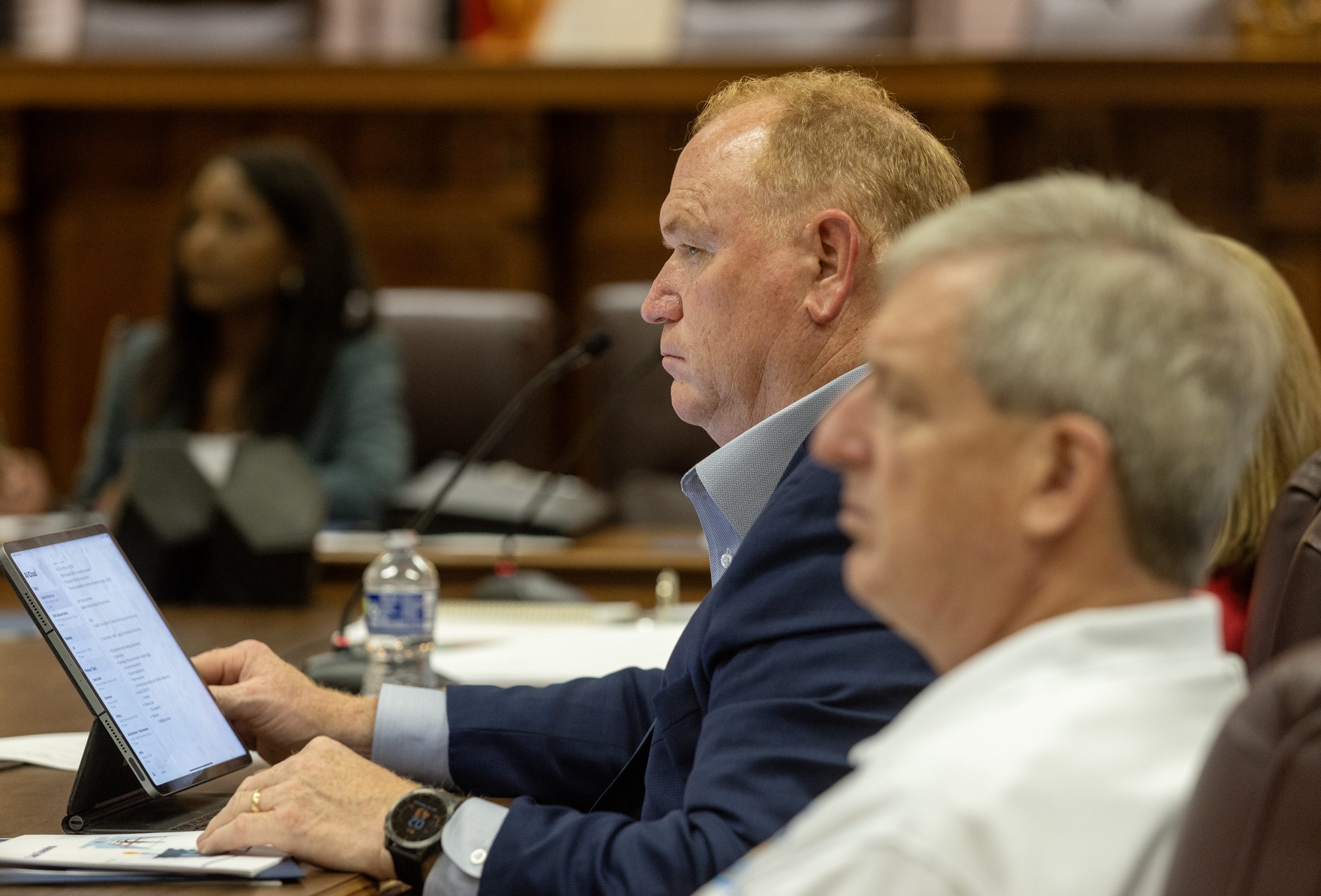The committee tasked with studying young people’s mental health made recommendations to the state Legislature Oct. 1.
The group proposed measures to shore up the state’s youth mental health workforce, enhance behavioral health training for school officials and school resource officers and screen students statewide for mental health concerns.
“Our mental health resources are so sparse and stretched,” said State Health Officer Dr. Dan Edney at the task force’s final meeting on Sept. 18.
Other proposals included requiring all school districts and colleges to partner with their local community mental health center, inventorying available mental health resources in the state and requiring that school districts issue policies on the use of cell phones in the classroom.
The K-12 and Postsecondary Mental Health Task Force, composed of legislators, state officials, mental health and education professionals and one student, met five times from July to September to hear from youth mental health experts and state leaders.
Sen. Nicole Boyd, a Republican from Oxford, sponsored the bill that created the committee in response to growing concerns from educators and health leaders about Mississippi children and adolescents’ declining mental health.
There is a dearth of mental health professionals who work with young people, experts and state officials told the committee.
The task force recommended that school psychologists receive a $6,000 salary supplement from the state. Nationally certified school counselors and nurses already receive this supplement.
There are just 519 school therapists statewide, Wendy Bailey, the executive director of the Mississippi Department of Mental Health, told task force members. That amounts to one for every two public elementary and secondary schools in the state.
The group proposed that the Mississippi Department of Education set a goal to raise the number of school counselors and school psychologists to a ratio of 250 students to one.
Mississippi’s current school counselor to student ratio is 400 to one, said Lance Evans, the Missisispi State Superintendent of Education.
Task force members proposed that all teachers and administrators receive Mental Health First Aid Training, a program that teaches participants to identify students who have or are developing a mental health or substance use problem and connect them with appropriate resources.
School resource officers should receive standardized law enforcement officer training to be employed in a school setting, including mentorship training, suggested the committee.
Committee members and experts were in support of implementing universal mental health screenings for students in order to identify mental health conditions early.
The task force recommended that mental health screeners be funded by the School Safety Grant Program in all school districts, though each district would be allowed to use a screener of their choosing.
“We have to make mental health screenings as routine as vaccines and hearing exams and eye exams,” said Phaedra Cole, the executive director of Life Help/Region 6 Community Mental Health Center.
A statewide ban on cell phones in school elicited much discussion, but the task force ultimately chose to recommend that the legislature require school districts to individually implement policies for cell phone and social media use in the classroom.
Eight states have implemented state-wide policies that ban or restrict cell phone use in schools, according to KFF.
All of Mississippi’s surrounding states have taken steps towards a cell phone ban or statewide restrictions. Louisiana is the only state to ban the use of electronic devices on school grounds with a new law taking effect during the 2024-2025 school year.
“I’m for a statewide ban,” said House Public Health and Human Services Chair Sam Creekmore, R-New Albany. “…If we can ban it in the state, it would take that pressure off the school boards and I think greatly improve the mental health of our children.”
“I don’t think we need to ban cell phones,” countered Melody Medaris, the executive director of Communicare, North Central Mississippi’s community mental health center. “…You’re going to take away one of their opportunities to reach out for help.”
She pointed to the 988 Suicide and Crisis Lifeline as a use for cell phones in the classroom.
Legislators will consider the task force’s recommendations during the legislative session, which begins Jan. 7.
The task force was chaired by Rep. Rob Roberson, R-Starkville and chair of the House Education Committee, and Sen. David Parker, R-Olive Branch and chair of Senate Accountability.

